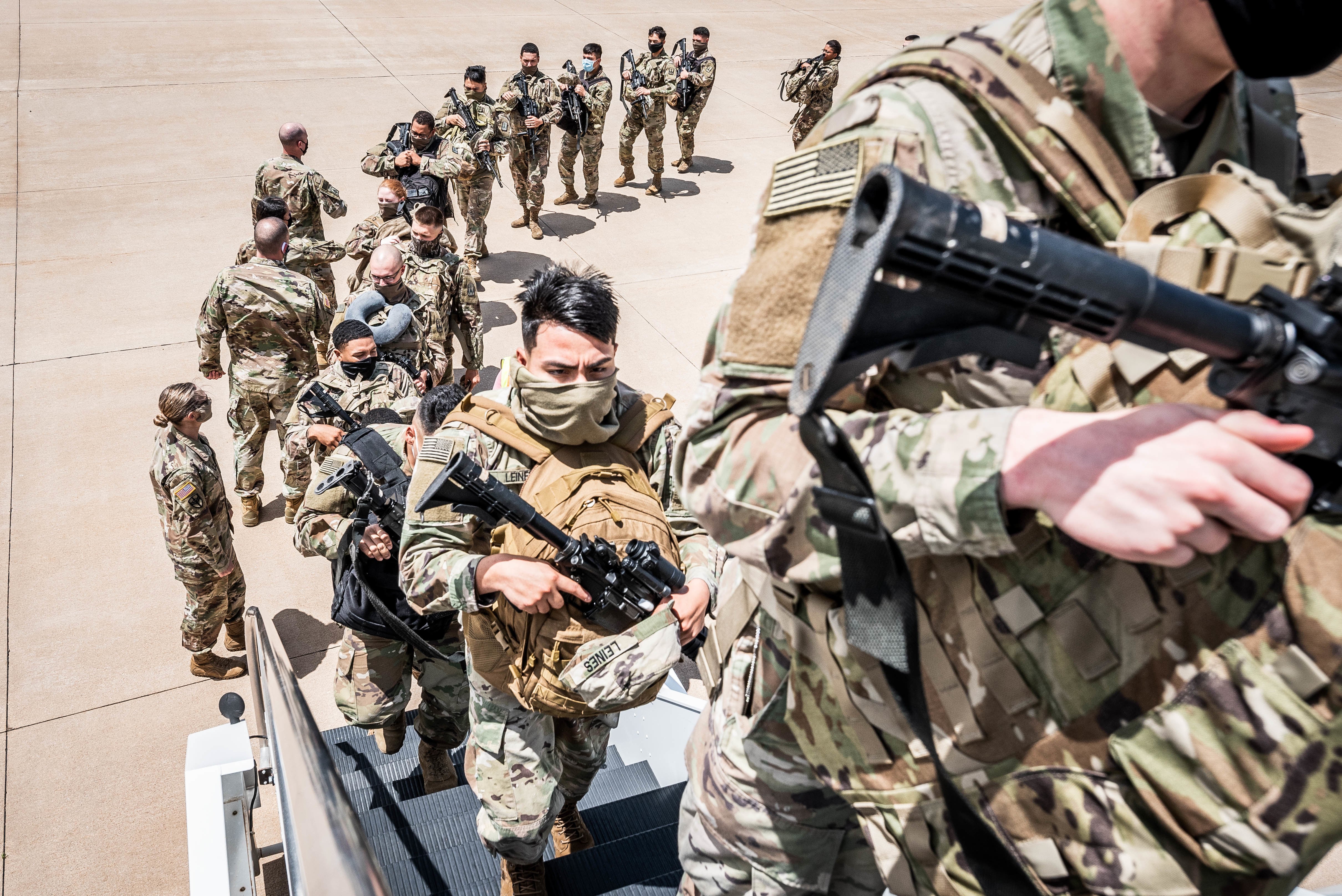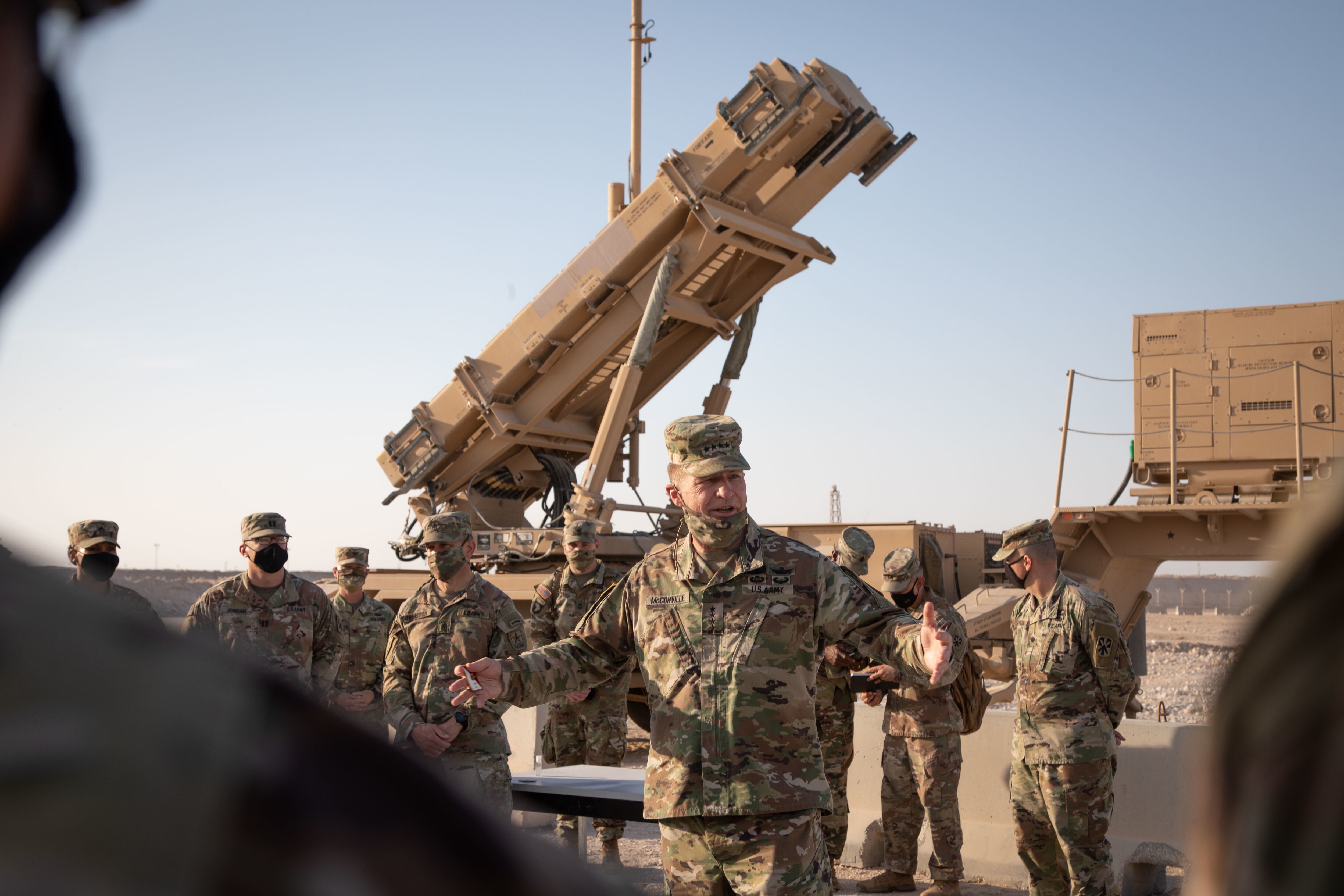The leaders of a Patriot missile battalion at Fort Bliss, Texas, where a soldier has been missing since July, were cleared by an investigation of allegations that their command climate pushed troops to go AWOL.
But investigators did determine that soldiers were pushed to their limits and had poor morale due to a high training tempo that began after events in the Middle East necessitated the unit be ready for deployment earlier than originally expected.
The investigation, which included interviews with 52 soldiers and data from four command climate surveys, was launched after Pvt. Richard Halliday went missing in July. Despite months of searching, he has still not been found.
Halliday’s family requested the senior commander at Fort Bliss, Maj. Gen. Sean Bernabe, investigate the 1st Battalion, 43rd Air Defense Artillery, due to alleged toxic leadership, criminal activity and unequal punishment of enlisted members, according to post spokeswoman Lt. Col. Allie Payne.
Investigators did not substantiate allegations that the battalion’s command climate was “counterproductive, destructive or toxic,” according to the findings, which were signed off by Bernabe last month. Investigators also did not find evidence that soldiers felt they “had no choice but to go AWOL” to escape the command climate.
Patriot missile units, like this battalion, are some of the most frequently deployed troops in the Army. They’re routinely tapped by the Pentagon to guard “critical infrastructure across the world,” the investigation noted.
“Overall, the actions conducted by this command team did impact the climate of the unit but based on the situation and events across the world, I did not see it as unreasonable nor unrealistic,” concluded the investigating officer, whose name was redacted.
RELATED

Halliday’s family posted a meme to social media Friday expressing their skepticism with the investigation’s findings. The missing soldier’s mother, Patricia Halliday, alleged in a video that soldiers in the unit were bullied and had to bribe others in order leave the barracks during lock-down, which the investigation said there was no evidence to support.
“This is what our sources told us what was happening. The 15-6 [investigation] was to discredit that,” Patricia Halliday said. “It’s a mockery.”
The investigation did find, however, that the battalion was stretched to its limit. Its soldiers had returned from a Middle East deployment in August 2019 and weren’t expecting to deploy again for at least a year.
But that timeline changed dramatically after an attack on Saudi Aramco oil facilities in September 2019 and ballistic missile strikes against Iraqi bases housing U.S. troops in early 2020.

Accelerating the timeline meant conducting field training multiple times between January and June 2020.
Commanders decided to conduct the training under the purview of “large scale combat” in “an austere environment,” meaning soldiers were conducting their own security, field feeding, noise and light discipline. This is different from the “fixed site” operations that troops were used to in training and on deployment.
“This type of training environment was not a normal training cycle that the battalion had executed previously,” the investigation reads. “COVID-19 impacted the unit training glide path and drove the command to remain in the field for additional time. ... The battalion leadership determined that they were safer in a field environment to complete training readiness and protect the soldiers which caused additional stress.”
Several leaders felt the austere training “disrupted their ability to conduct crew certifications,” the investigation stated.
Despite the remarkable stress on the battalion, it “does not appear to be outside the norm of indiscipline” across the rest of the 11th Air Defense Artillery Brigade.
Though the battalion has a larger number of administrative separations, the investigation stated it wasn’t able to link those incidents to the command climate.
Another battalion belonging to the 11th Air Defense Artillery Brigade is currently under investigation after nearly a dozen of its soldiers ingested antifreeze while training in the field.
Lt. Col. Payne, the Fort Bliss spokeswoman, said those soldiers believed they were consuming an alcoholic beverage. The circumstances surrounding how the soldiers obtained the substance have not been released.
Kyle Rempfer was an editor and reporter who has covered combat operations, criminal cases, foreign military assistance and training accidents. Before entering journalism, Kyle served in U.S. Air Force Special Tactics and deployed in 2014 to Paktika Province, Afghanistan, and Baghdad, Iraq.




